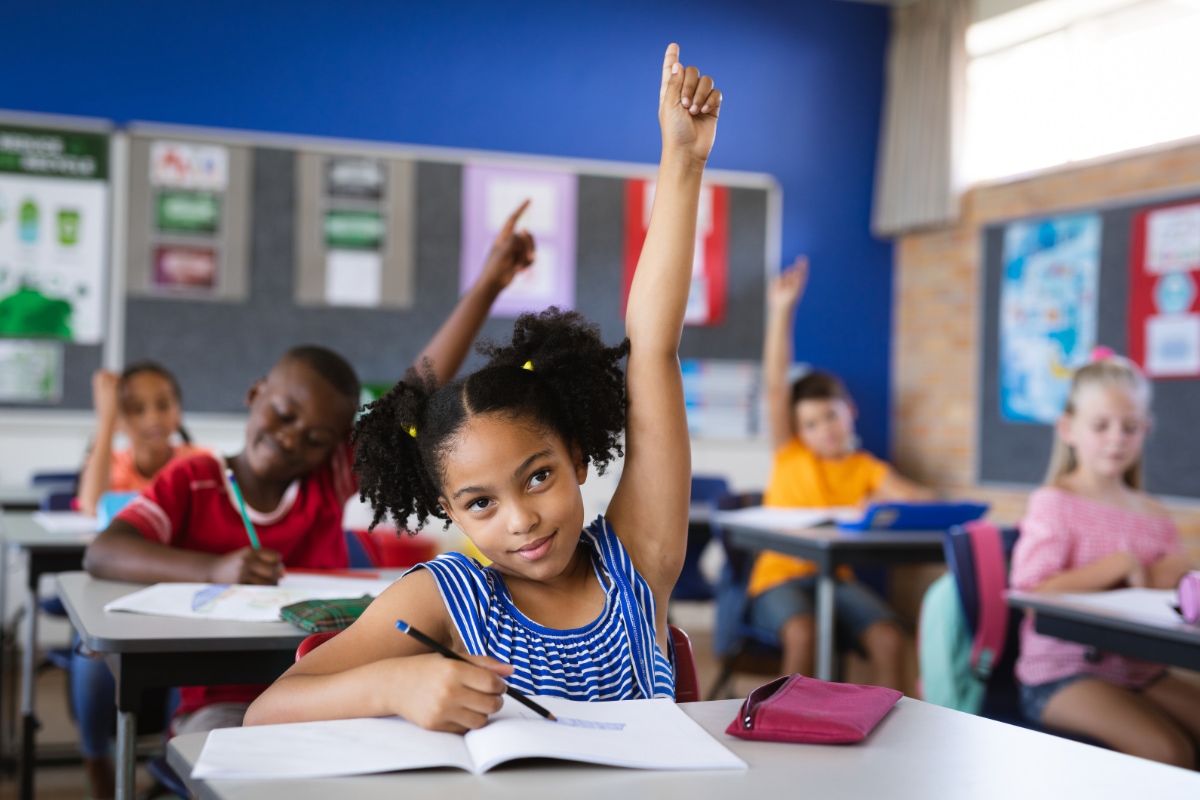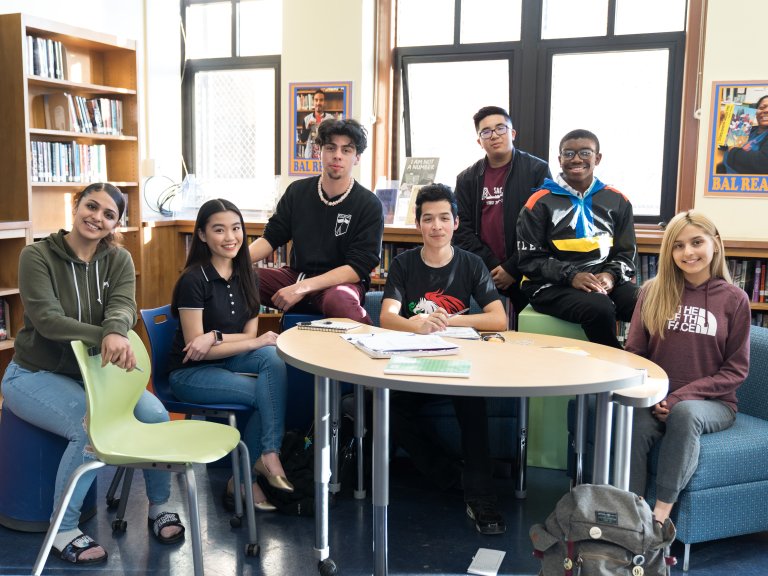Sign Up With Us: Events and Campaigns to Save Temecula Schools
Sign Up With Us: Events and Campaigns to Save Temecula Schools
Blog Article
The Impact of College Environments on Academic Success and Personal Well-Being
The school setting substantially influences both academic success and individual wellness, encompassing elements such as physical format, class environment, and interpersonal dynamics. The design of academic areas, including natural lighting and ergonomic furnishings, can improve students' concentration and convenience. The high quality of teacher-student connections and the nature of peer communications play essential functions in fostering an atmosphere conducive to finding out and emotional support. Recognizing just how these various elements interplay to shape trainee outcomes elevates essential concerns regarding maximizing academic settings for all natural development. Exactly how can institutions strategically enhance these facets to much better sustain their students?
Physical Format and Design
Exactly how does the physical design and style of a college influence academic success? The arrangement and aesthetic of a school atmosphere can dramatically affect pupils' understanding end results. A properly designed school format promotes ease of motion, decreases diversions, and promotes a feeling of safety and belonging. As an example, vast hallways and clearly significant areas facilitate smooth changes between courses, minimizing lateness and disruption. Additionally, purposefully positioned typical areas encourage social communications, which are vital for social and psychological growth.
All-natural lighting and efficient ventilation systems are critical in boosting cognitive function and reducing absenteeism. Research studies have revealed that class with adequate all-natural light enhance trainee focus and lower sensations of sleepiness. Ergonomic furniture customized to students' requirements can avoid physical pain, enabling for extended focus and interaction in academic activities.
Accessibility to exterior spaces and aesthetically pleasing surroundings additionally play a crucial role - Save Temecula Schools. Green areas and properly maintained school premises provide possibilities for physical workout and psychological relaxation, both of which are necessary for preserving high degrees of academic efficiency. Essentially, a thoughtfully created physical environment can function as a catalyst for academic quality, cultivating an ambience that sustains both mentor and learning
Class Environment
A positive classroom environment is fundamental to attaining academic success. An atmosphere that fosters a feeling of safety and security, inclusivity, and mutual regard urges pupils to involve more proactively in their knowing processes. The atmosphere of a classroom, including aspects such as illumination, noise levels, and seating plans, can dramatically affect student focus and motivation. A well-ventilated, well-lit classroom with minimal interruptions can improve cognitive function and reduce anxiety, thereby promoting better scholastic end results.
In addition, the classroom environment need to support a society of cooperation and open interaction. They are more most likely to engage deeply with the product and create vital believing skills when students really feel comfortable expressing their concepts and asking concerns. Peer communications and group tasks can enhance learning by offering varied perspectives and promoting teamwork
Moreover, developing clear assumptions and constant routines can develop an organized environment that permits trainees to concentrate on their studies. By minimizing uncertainty and giving a predictable structure, trainees can much better manage their time and duties. Ultimately, a positive classroom ambience not just improves academic efficiency however additionally adds to the overall well-being of trainees, preparing them for future instructional and individual undertakings.
Teacher-Student Relationships
Building on the relevance of a positive class environment, the partnerships between pupils and instructors play an essential role in shaping scholastic success. A healthy teacher-student relationship promotes a discovering setting where students feel valued, understood, and supported, which considerably enhances their inspiration and involvement. When students perceive their teachers as friendly and understanding, they are more likely to participate proactively in class and seek help when needed, adding to a much deeper understanding of the subject.

This count on enables students to reveal their concepts and problems easily, cultivating a collective understanding atmosphere. In significance, strong teacher-student relationships are a cornerstone of academic success, playing a vital role in go to the website both scholastic success and personal growth.
Peer Interactions
Peer communications substantially affect scholastic success by shaping a pupil's cognitive and social development. Within the institution setting, peer relationships work as a fundamental part for discovering and individual growth. Favorable peer communications can boost a trainee's inspiration and interaction in scholastic activities with collaborative discovering and common assistance. When pupils function together in group settings, they trade concepts, resolve troubles jointly, and establish critical believing abilities. Such communications cultivate a sense of belonging and area, which is crucial for psychological wellness and scholastic determination.

Reliable peer communications likewise add to the growth of necessary life abilities, such as conflict, collaboration, and interaction resolution. These social expertises are crucial for both academic success and personal well-being, highlighting the relevance of cultivating favorable peer dynamics within the school environment.
After-school Activities
Engaging in after-school activities plays a critical role in a student's academic success and personal advancement. These tasks, ranging from sporting activities teams to debate clubs, offer pupils opportunities to sharpen valuable skills such as leadership, time monitoring, and teamwork. Study consistently indicates that pupils who take part in after-school activities often tend to achieve greater academic performance. This relationship is frequently credited to the organized environment and the discipline called for to stabilize both extracurricular and scholastic commitments.
In addition, extracurricular involvement promotes a sense of belonging and area, which is important for individual health. Taking part in group activities allows students to construct and strengthen social networks, enhancing their social and emotional knowledge. These interactions are vital for creating interpersonal skills that are advantageous in both scholastic and future expert environments.
Additionally, extracurricular tasks supply a useful electrical outlet for trainees to discover their interests and interests past the basic educational program. This expedition can result in the discovery of brand-new talents and potential profession courses, additionally motivating students to involve more deeply in their academic job. To conclude, the duty of after-school activities expands past plain entertainment; they are essential to fostering a holistic academic experience that promotes both academic success and individual development.
Conclusion
Altogether, the impact of institution atmospheres on both academic success and individual well-being is profound. Attentively developed physical formats and classrooms, in addition to positive teacher-student partnerships and constructive peer interactions, significantly improve trainee motivation and interaction. In addition, the visibility of supportive educators can mitigate anxiety, cultivating a supporting atmosphere for alternative growth. These elements collectively highlight the value of producing and keeping optimal college environments for the advantage of trainees' scholastic and individual Website growth.
Inevitably, a positive class environment not just boosts scholastic performance however additionally contributes to the total wellness of pupils, preparing them for future academic and individual ventures.

Report this page